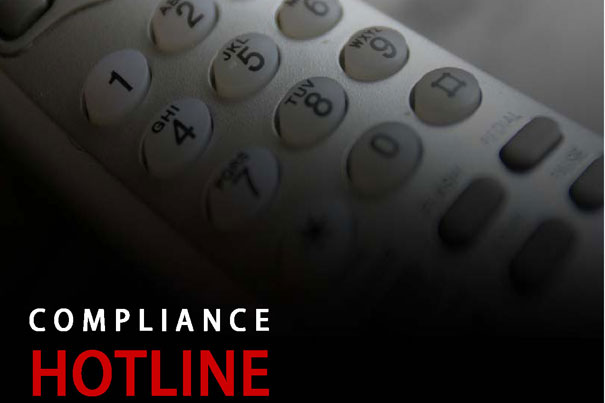
The University recently adopted its first comprehensive whistleblowing policy, which is intended to foster an environment in which people feel free to report possible wrongdoing without fear of retaliation and to create an efficient mechanism to deal with such complaints. There is a 24-hour Compliance Hotline and website available.
The right way to report wrongdoing
University rolls out new whistleblowing policy
A student sees a professor fudge numbers on a research project to meet a grant’s requirements. An employee is sexually harassed by her boss. A research fellow discovers his supervisor is stealing money from the University.
They’re the kind of situations no one at Harvard expects to face, but if such instances of legal or ethical wrongdoing do occur, it’s up to individuals to report what they see. To make it easier for members of the Harvard community to do just that, the University recently adopted its first comprehensive whistleblowing policy. To make that policy more accessible, the University unveiled this week a brief online training program for those who’d like to become more familiar with the guidelines.
The policy, adopted at the start of the 2012 fiscal year, is intended to foster an environment in which people feel free to report possible wrongdoing without fear of retaliation and to create an efficient mechanism to deal with such complaints, according to Marilyn Hausammann, vice president for human resources.
“Members of the Harvard community are encouraged to report suspected violations of law or University policy to their supervisor, to a local tub finance officer, to a local or central human resources officer, or to the Compliance Hotline,” a 24-hour phone line (877.694.2275), or through the website managed by an outside vendor, the policy reads. “The University will protect from retaliation members of the Harvard community who make good-faith reports of suspected violations of law or University policy.” Faculty members and other community members may also report concerns to the local Office of the Dean under the policy.
The policy covers all members of the University community, including faculty, fellows, teaching assistants, staff, students, contractors, volunteers, and official visitors.
“By providing a universal policy and means of redress for the entire community, we’re taking the burden off individuals of having to decide which policy they think is being violated and how they should best address it,” Hausammann said. “This allows someone who suspects wrongdoing to easily and safely report it, and allows those people who are receiving the report to ensure the right review happens.”
All reports of wrongdoing received through the hotline are forwarded to Harvard Risk Management and Audit Services (RMAS), which manages complaints and assigns them to the appropriate department for review. Anyone who has reported a complaint can call the Compliance Hotline for follow-up.
The policy was drafted following a 2009 survey of best corporate practices, according to Gail McDermott, director of RMAS. While universities and other nonprofits are not required by law to maintain a whistleblower policy, it is now considered a best practice.
In its survey of peer institutions, RMAS found that most organizations preferred to use external vendors to run an all-hours complaint hotline, as Harvard has done since 2007.
“External vendors [employ] people who do this day in and day out,” McDermott said. “They know what questions to ask and how to document a complaint so you have the best information possible to manage the request.”
In addition, she said, many people feel safer calling a third party to discuss their concerns. “It provides more of a sense of anonymity,” McDermott said.
“A policy such as this is really just a tool for promoting what Harvard values, which is to have ethical and lawful conduct across the University,” McDermott said. “They’re designed to encourage honest, timely, and safe reporting of anything someone sees that they’re worried about.
“It’s always been the case that Harvard supports [whistleblowers], but having a policy like this makes sure people fully understand that they’ll be protected,” she added.
To educate the Harvard community on their options, the Center for Workplace Development has created a brief Web tutorial on the new policy, which will also be disseminated and discussed in new employee orientation and new manager training sessions.




